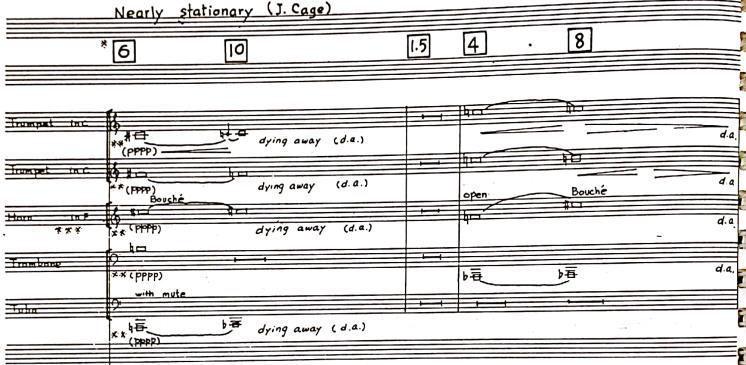THE NEO-MUSICOLOGY OF NON-MUSICOLOGICAL MUSICS MARIN MARIAN „CONSTANTIN BRĂILOIU” INSTITUTE FOR ETNOGRAPHY AND FOLKLORE ABSTRACT: Subject to national/nationalist selections, exclusions and purisms, throughout the entire course of the 20th Century the Romanian musicologies had ignored the musics of some religious minorities – which, anyhow, made out of music a very important vehicle for spiritual enrichment, for moral and social emancipation, for and survival and progress. The „Neo”-musicology that is suggested here is actually almost the same musicology/ethnomusicology (from Romania and anywhere else). Only that the liberation from the limitations, restrictions and rejections/idiosyncrasies of the past, the respect and interest in the musics previously non-musicological (in the sense that the official, mainstream, professed musicologies considered them undignified, unworthy of academic interest), hence the advanced degree of empathy and humanism that can be acquired only be the contemporary decades... they all make a difference.
KEYWORDS: MUSICS, ETHNOLOGIES, SUBJECTIVITIES, POLITICS BY THE VOLUME Muzicologii, etnologii, subiectivități, politici1 [Musics, Ethnologies,
Subjectivities, Politics] I launched – and the demonstration was reiterated more or less obviously, directly, demonstratively or ostentatiously inside that book – the idea that we should (ought to or at least it would be worthy to) speak not only about musicology (and almost about all the other human studies), at singular, but about musicologies (ethnologies, anthropologies, etc), meaning at plural forms. Inasmuch as it was desired (and it’s still desired) homogeneity to exist, unitary consolidation and unique constitution (at any level and within any field), there has always been plurality, a plurality that deserves encouragement (and not only plurality, but pluralism too). Also by the innocent and tolerant syntagm „everyone does whatever he/she can” (plus the honorable adding, „at his/her better”, and most honorably, „at his/her best”) one presumes and it indicates the fact that, also quality-wise, not just quantity-wise, there is no homogeneity, unique standard and style, „egalitarian”, synonimical and interchangeable forms and structures of academic performance, there is no singular and unidirectional vector, there is no consonance of simple, mimetic (if not mere banal, handy) harmonies. There exists content and cognitive/gnoseologic heterogeneities, hence there is value, intellectual, structural or quality pluralism. As a consequence, musicology is not one (only) and good, solo and singularly, or only generating cuts and multiplications and autonomisations of branches/subdisciplines. There always has been and still are musicologies and ‘musicologies’, in time also its branches, its conceptual subdivisions and autonomisations becoming again of various, plural categories, genres, styles, paradigms. Musicology is not just autonomous; it lives also in accordance with the contribution of one or another from musicologists, schools/groups; musicology „has” to also enjoy originality, inner diversity, plural alternatives. The pluralization of the term, thus, is natural (absolutely not subversive, in the contrary, creative). Of course, the term neomusicology is, on these pages, rather suggestive/indicative, metaphorical. Intending to draw attention, in the same time to argue with the traditional, historical musicology (and especially with the communist one), for the fact that they ignored some dimensions of music itself, more exactly some musics (repertoires, human activities and communities) for which „it was not found” a curious, interested, tolerant, empathic, applied or associable professionally-academic musicology.
1 Marian-Bălașa 2011 (unfortunately, read quickly, the volume’s title was wrongly taken by a few colleagues; the plural of the first nouns did not refer to musicologists and ethnologists as pysicial persons and historical contributions, actually pluralizing the named academic disciplinespluralul primelor substantive nu se referea nicidecum la muzicologi și etnologi ca persoane fizice și contribuții istorice, în realitate pluralizând disciplinele academice numite).
183








